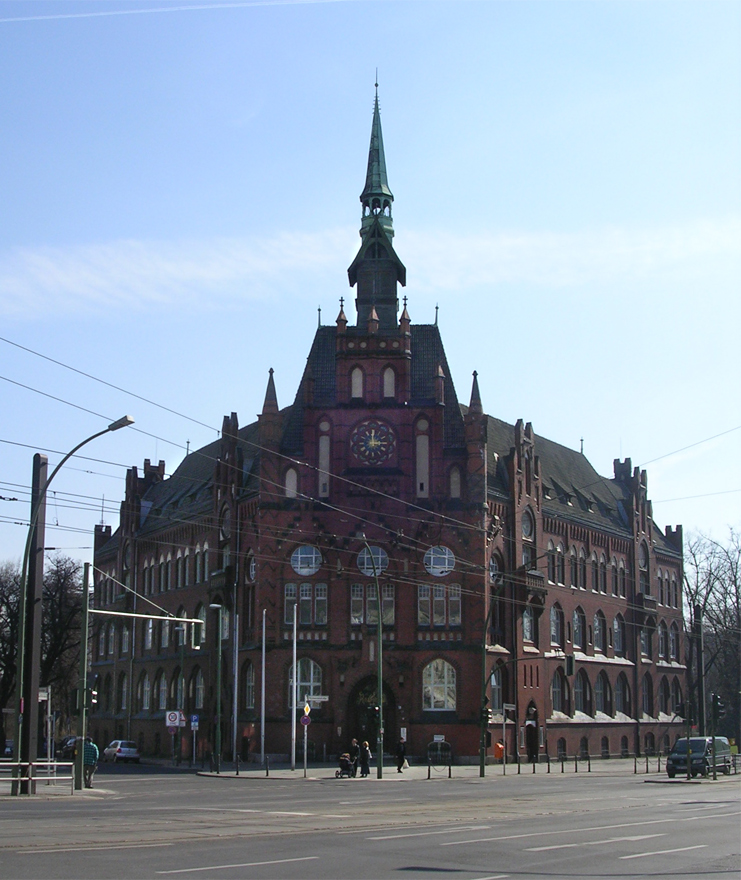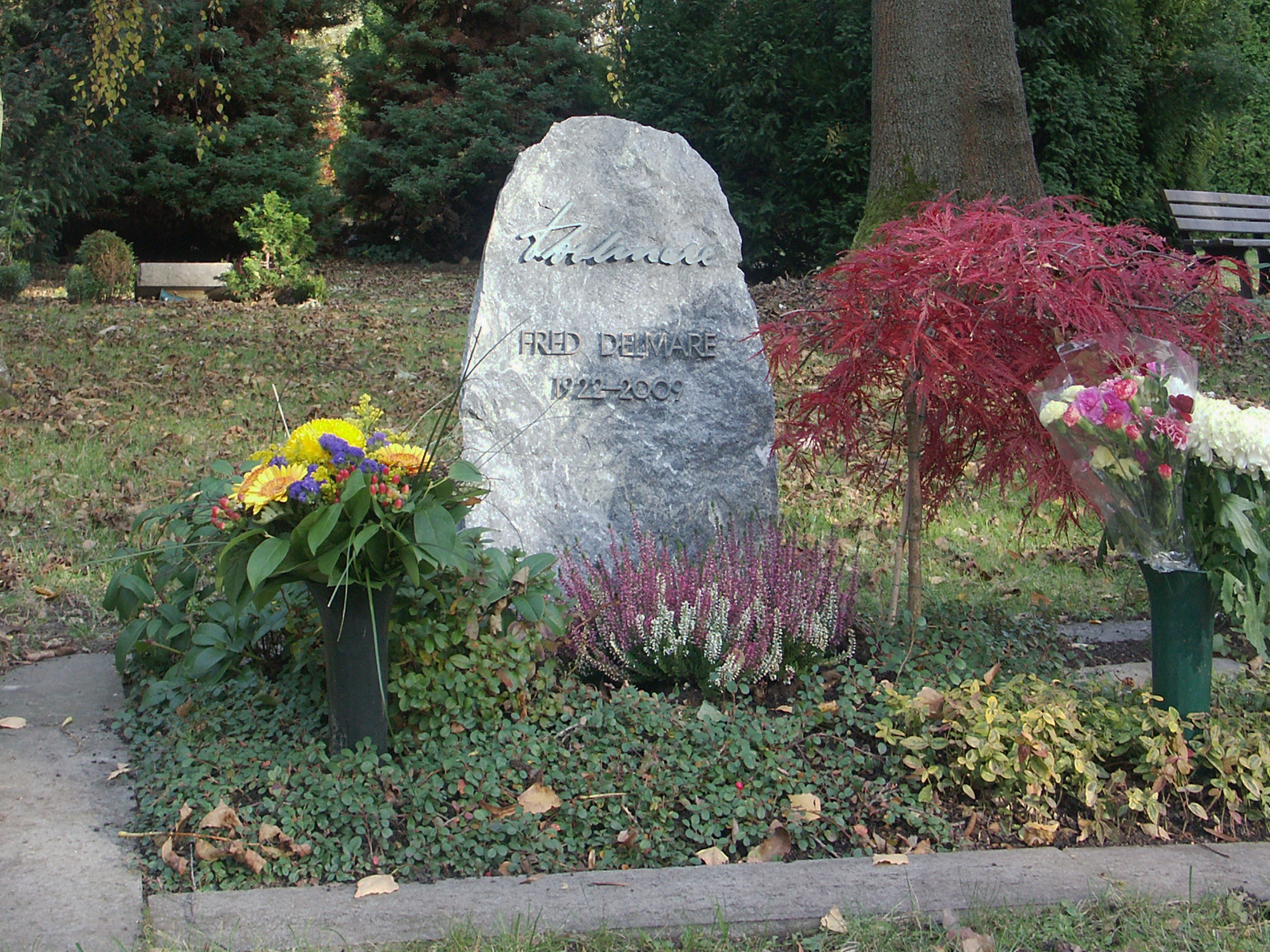|
The Legend Of Paul And Paula
''Die Legende von Paul und Paula'' (; English: ''The Legend of Paul and Paula'') is a 1973 tragicomic East German film directed by Heiner Carow. A novel by Ulrich Plenzdorf named ''Die Legende vom Glück ohne Ende'' was based on this film. The film was extremely popular on release and drew 3,294,985 viewers (the GDR had a population at the time of around 17 million). However, due to the film's political overtones it was almost not released. East German leader Erich Honecker personally decided to allow it to be shown. Today it is one of the best-known East German films. Plot summary Paul is a minor bureaucrat in East Berlin, where he lives with his wife and their son in a modern high-rise apartment building. While he is well educated and professionally ambitious, he is generally bored with his life. He cannot relate to his unsophisticated wife, who is repeatedly unfaithful, even bringing men home to their apartment when Paul is away. Paula, a grocery store cashier and single m ... [...More Info...] [...Related Items...] OR: [Wikipedia] [Google] [Baidu] |
Heiner Carow
Heinrich "Heiner" Carow (19 September 1929 – 1 February 1997) was a German film director and screenwriter. Early life and education Heinrich Carow was born on 19 September 1929 in Rostock, Mecklenburg, Germany. He became known as "Heiner". Career Carow's 1986 film '' So Many Dreams'' was entered into the 37th Berlin International Film Festival. In 1987, he was a member of the jury at the 38th Berlin International Film Festival. In 1990, his film ''Coming Out'' won the Silver Bear for an outstanding artistic contribution at the 40th Berlin International Film Festival. Death and legacy Carow died on 1 February 1997, aged 67, in Berlin. His grave is located in Babelsberg. The Heiner Carow Prize (for best German young film) was established by the DEFA Foundation in 2013. It is awarded to films shown in the Panorama program of the Berlin International Film Festival. In 2024, Eva Trobisch won the prize for her film '' Ivo''. Selected filmography * '' Sheriff Teddy'' (19 ... [...More Info...] [...Related Items...] OR: [Wikipedia] [Google] [Baidu] |
Berlin-Lichtenberg
Lichtenberg () is a quarter (''Ortsteil'') of Berlin in the homonymous borough (''Bezirk'') of Lichtenberg. Until 2001 it was an autonomous district with the localities of Fennpfuhl, Rummelsburg, Friedrichsfelde and Karlshorst. History The historic village of Lichtenberg, today also called ''Alt-Lichtenberg'', was founded about 1230, due to the German colonization of the territory of Barnim. The settlement around the fieldstone church was first mentioned in a 1288 deed, its estates were acquired by the neighbouring City of Berlin in 1391. ''Alt-Lichtenberg'' suffered severely during the Thirty Years' War and remained a small village at the Berlin gates until in the late 18th century Prussian noblemen like general Wichard Joachim Heinrich von Möllendorf built their residences here. In 1815 the Lichtenberg estate became a property of the Prussian chancellor Karl August von Hardenberg. The village came to be a residential area and a suburb of Berlin from the mid 19th centur ... [...More Info...] [...Related Items...] OR: [Wikipedia] [Google] [Baidu] |
1970s German-language Films
Year 197 ( CXCVII) was a common year starting on Saturday of the Julian calendar. At the time, it was known as the Year of the Consulship of Magius and Rufinus (or, less frequently, year 950 ''Ab urbe condita''). The denomination 197 for this year has been used since the early medieval period, when the Anno Domini calendar era became the prevalent method in Europe for naming years. Events By place Roman Empire * February 19 – Battle of Lugdunum: Emperor Septimius Severus defeats the self-proclaimed emperor Clodius Albinus at Lugdunum (modern Lyon). Albinus commits suicide; legionaries sack the town. * Septimius Severus returns to Rome and has about 30 of Albinus's supporters in the Senate executed. After his victory he declares himself the adopted son of the late Marcus Aurelius. * Septimius Severus forms new naval units, manning all the triremes in Italy with heavily armed troops for war in the East. His soldiers embark on an artificial canal between the Tigris a ... [...More Info...] [...Related Items...] OR: [Wikipedia] [Google] [Baidu] |
East German Films
This is a list, in year order, of the most notable films produced in the Soviet Occupation Zone of Germany and the socialist German Democratic Republic (GDR, East Germany) from 1945 until German Reunification in October 1990. The state owned East German film company DEFA produced about 800 feature films between 1946 and 1992. Besides DEFA, the state broadcaster DFF and the Deutsche Hochschule für Filmkunst (now the Filmuniversität Babelsberg) were the only other organizations in the GDR that produced feature films for cinematic release, although far fewer than DEFA. DEFA also produced about 750 animated movies and more than 2500 documentaries and short films. DEFA feature films are accessible and licensable as part of DEFA's entire film heritage on the PROGRESS archive platform. For an alphabetical list of articles on East German films see :East German films. 1945–1949 (the Soviet Sector of Germany) Note that the German Democratic Republic formally came into existence in ... [...More Info...] [...Related Items...] OR: [Wikipedia] [Google] [Baidu] |
Films Set In Berlin
A film, also known as a movie or motion picture, is a work of visual art that simulates experiences and otherwise communicates ideas, stories, perceptions, emotions, or atmosphere through the use of moving images that are generally, since the 1930s, synchronized with sound and (less commonly) other sensory stimulations. Etymology and alternative terms The name "film" originally referred to the thin layer of photochemical emulsion on the celluloid strip that used to be the actual medium for recording and displaying motion pictures. Many other terms exist for an individual motion-picture, including "picture", "picture show", "moving picture", "photoplay", and "flick". The most common term in the United States is "movie", while in Europe, "film" is preferred. Archaic terms include "animated pictures" and "animated photography". "Flick" is, in general a slang term, first recorded in 1926. It originates in the verb flicker, owing to the flickering appearance of early films. ... [...More Info...] [...Related Items...] OR: [Wikipedia] [Google] [Baidu] |
1973 Films
This page covers significant events of the year 1973 in film. Warner Bros. and Walt Disney Studios celebrated their 50th anniversaries. Highest-grossing films United States and Canada The top ten 1973 released films by box office gross in the United States and Canada are as follows: Outside North America The highest-grossing 1973 films in countries outside of North America. Worldwide gross revenue The following table lists known worldwide gross revenue figures for several high-grossing films that originally released in 1973. Note that this list is incomplete and is therefore not representative of the highest-grossing films worldwide in 1973. This list also includes gross revenue from later re-releases. The year's highest-grossing actor worldwide was Hong Kong martial arts film star Bruce Lee, who died the same year. Events *March – '' Five Fingers of Death'' is released in the United States and is a surprise success starting a kung fu film craze in North America ... [...More Info...] [...Related Items...] OR: [Wikipedia] [Google] [Baidu] |
Rolf Ludwig
Rolf Ludwig (28 July 1925 – 27 March 1999) was a German actor. He appeared in more than one hundred films from 1952 to 1997, performed on stage and did radio productions as well. Ludwig was awarded the National Prize, 2nd degree, for art and literature, for his achievements. Selected filmography References External links * 1925 births 1999 deaths Male actors from Stockholm German male film actors East German actors German male stage actors German male radio actors {{Germany-film-actor-1920s-stub ... [...More Info...] [...Related Items...] OR: [Wikipedia] [Google] [Baidu] |
Fred Delmare
Werner Vorndran (24 April 1922 – 1 May 2009), known professionally as Fred Delmare, was a German actor. Life and work Werner Vorndran was the son of a carpenter and a seamstress and grew up in Hüttensteinach at Sonneberg in Thuringia, where as an adolescent he appeared on a peasant stage. After his time in the Volksschule he learned the trade of a tool and die maker. As military volunteer he went to the marine in Bremerhaven. At the local municipal theatre he took his first drama lessons with the theatre manager Karl Georg Saebisch 1940 and 1941 and worked as background actor in an operette production. During his military service he suffered a severe abdominal injury, for that he was cured until the end of war.Fred Delmare at |
Heidemarie Wenzel
Heidemarie is a given name. Notable people with the name include: * Heidemarie Bártová (born 1965), female diver from the Czech Republic * Heidemarie Cammerlander (born 1942), Austrian politician (The Greens) * Heidemarie Fuentes, American actress and producer * Heidemarie Hatheyer (1918–1990), Austrian film actress * Heidemarie Stefanyshyn-Piper (born 1963), American Naval officer and former NASA astronaut * Heidemarie Steiner (born 1944), German figure skater and coach * Heidemarie Unterreiner (1944–2025), Austrian politician * Heidemarie Wieczorek-Zeul (born 1942), German politician (SPD) Fictional characters * Heidemarie W. Schnaufer, a character from the anime/manga ''Strike Witches is a Japanese media mix franchise originally created by Fumikane Shimada via a series of magazine illustration columns. The illustrations have since inspired several official light novel, manga, and anime series and v ...'' {{given name German feminine gi ... [...More Info...] [...Related Items...] OR: [Wikipedia] [Google] [Baidu] |
Angela Merkel
Angela Dorothea Merkel (; ; born 17 July 1954) is a German retired politician who served as Chancellor of Germany from 2005 to 2021. She is the only woman to have held the office. She was Leader of the Opposition from 2002 to 2005 and Leader of the Christian Democratic Union (CDU) from 2000 to 2018. Merkel was born in Hamburg in West Germany. Her family moved to East Germany when she was an infant. Merkel obtained a doctorate in quantum chemistry in 1986 and worked as a research scientist until 1989. She then entered politics in the wake of the Revolutions of 1989, briefly serving as deputy spokeswoman for the first democratically elected government of East Germany, led by Lothar de Maizière. Following German reunification in 1990, Merkel was elected to the Bundestag for the state of Mecklenburg-Vorpommern. As the protégée of Chancellor Helmut Kohl, Merkel was appointed as Minister for Women and Youth in 1991, later becoming Minister for the Environment, Nature Conserv ... [...More Info...] [...Related Items...] OR: [Wikipedia] [Google] [Baidu] |
Chancellor Of Germany
The chancellor of Germany, officially the federal chancellor of the Federal Republic of Germany, is the head of the federal Cabinet of Germany, government of Germany. The chancellor is the chief executive of the Federal Government of Germany, Federal Cabinet and heads the executive branch. The chancellor is elected by the Bundestag on the proposal of the President of Germany, federal president and without debate (Article 63 of the Basic Law for the Federal Republic of Germany, German Constitution). During a state of defence declared by the Bundestag the chancellor also assumes the position of commander-in-chief of the Bundeswehr. List of chancellors of Germany, Ten people (nine men and one woman) have served as chancellor of the Federal Republic of Germany, the first being Konrad Adenauer from 1949 to 1963. (Another 26 men had served as "Reich chancellors" of the previous German Empire from 1871 to 1945.) The current officeholder is Friedrich Merz of the Christian Democratic Un ... [...More Info...] [...Related Items...] OR: [Wikipedia] [Google] [Baidu] |
Berlin Ostbahnhof
Berlin Ostbahnhof ( German for Berlin East railway station) is a main line railway station in Berlin, Germany. It is located in the Friedrichshain quarter, now part of Friedrichshain-Kreuzberg borough, and has undergone several name changes in its history. It was known as Berlin Hauptbahnhof from 1987 to 1998, a name now applied to Berlin's new central station at the former Lehrter station. Alongside Berlin Zoologischer Garten station it was one of the city's two main stations; however, it has declined in significance since the opening of the new Hauptbahnhof on 26 May 2006, and many mainline trains have been re-routed on the North–South mainline through the new Tiergarten tunnel, bypassing Ostbahnhof. History Early history The station opened on 23 October 1842 as Frankfurter Bahnhof, the terminus of an railway line to Frankfurt (Oder) via Fürstenwalde (Spree). In 1845 the previously independent Berlin–Frankfurt railway merged into the '' Niederschlesisch-Märkisc ... [...More Info...] [...Related Items...] OR: [Wikipedia] [Google] [Baidu] |




